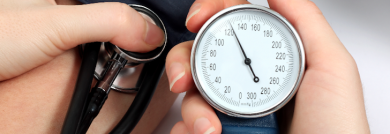
Ambulatory blood pressure (BP) measurements are a stronger predictor of all-cause and cardiovascular (CV) mortality than clinic BP measurements, according to new findings.
Researchers arrived at this conclusion following a national cohort study of 63,910 adults in Spain from 2004 to 2014. Median follow-up lasted 4.7 years.
During the study, the researchers assessed ambulatory BP data in categories of sustained hypertension (elevated clinic and elevated 24-hour ambulatory BP), “white-coat” hypertension (elevated clinic and normal 24-hour ambulatory BP), masked hypertension (normal clinic and elevated 24-hour ambulatory BP), and normotension (normal clinic and normal 24-hour ambulatory BP).
Cox regression models were used to conduct analyses, which were adjusted for various factors.
Over the course of follow-up, 3808 patients died from any cause, of whom 1295 died due to CV-related causes. Findings indicated that 24-hour systolic pressure was most strongly tied to all-cause mortality (hazard ratio [HR] 1.58 per 1-SD increase in pressure) vs clinic systolic pressure (HR 1.04).
Corresponding HRs per 1-SD increase in pressure were calculated as 1.55 and 1.54 for nighttime and daytime ambulatory systolic pressure, respectively. The researchers noted that these associations remained consistent throughout all subgroups of age, sex, and health status.
Furthermore, masked hypertension was found to be more strongly associated with all-cause mortality (HR 2.83) compared with sustained hypertension (HR 1.80) and white-coat hypertension (HR 1.79), with similar results observed for CV mortality.
REFERENCE:
Banegas JR, Ruilope LM, de la Sierra A, et al. Relationship between clinic and ambulatory blood-pressure measurements and mortality. N Eng J Med. 2018;378:1509-1520.